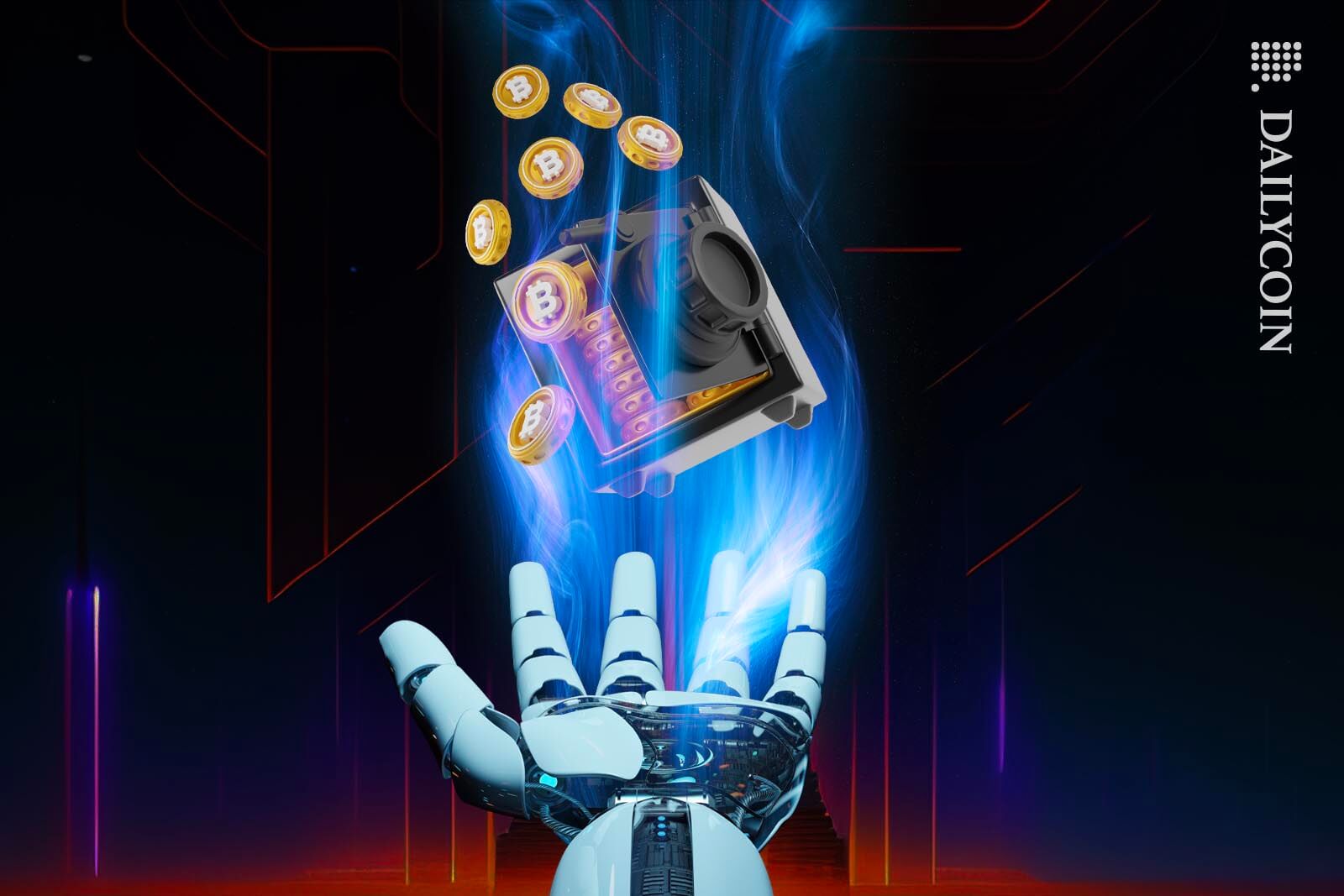
- Cold wallets in crypto asset security and custody, Venables says.
- Potential future technologies like retinal scans are probably coming.
- Venables discusses the regulatory landscape affecting cold wallets.
As cryptocurrencies continue to disrupt the financial landscape, securely storing these digital assets becomes increasingly urgent. Yet, the answer may lie in a technology that is as robust as underutilized: cold wallets. Often considered the gold standard for secure crypto storage, cold wallets are undergoing significant changes as the industry evolves.
In an exclusive interview, we explored this critical subject with Mark Venables, President of The Crypto Merchant, a company working in cold wallet distribution. Venables discusses the challenges of making these wallets user-friendly while maintaining high-security standards. He also delves into the regulatory landscape that could shape their future.
Only 10% of Crypto Users Have a Cold Wallet: Venables
As blockchain tech constantly evolves, there’s always a risk of hacks. Surprisingly, despite the inherent risks of online storage, only a small fraction of crypto users are utilizing cold wallets to safeguard their investments.
Sponsored
You’ve emphasized cold wallets’ role in ensuring the secure storage of cryptocurrency assets. Can you elaborate on why they are so important?
It’s all about security. If you have self-custody, the crypto will always be in your wallet. Unless that particular currency went to zero, you’ll still always have the one Bitcoin or the 10 Bitcoins you possessed when you put it into the cold wallet. No hackers can get it, and no exchange like FTX can lose it.
I wouldn’t recommend keeping your crypto on an exchange for ten years; a lot can happen. Right now, you can take self-custody just with a cold wallet. If it’s online, it’s vulnerable in some way. Cold and hard wallets come across as a little scary or complex, and this is what I’m trying to break.
Sponsored
I’m trying to demystify that whole aspect and humanize it a little bit. You don’t need to know about blockchain and Web 3 to have a cold wallet. Of the millions of people who hold crypto assets, only about 10% have a cold wallet, and it’s astonishing.
I speak to people with eye-watering amounts of crypto who don’t have a cold wallet. Even the exchanges use cold wallets because they don’t need all their crypto at hand. And it’s so cost-effective, there’s no reason not to have one.
Making Cold Wallets User-Friendly
As the adoption of cryptocurrencies continues to rise, there is a growing need for user-friendly storage solutions. While cold wallets offer security, their complexity can be a barrier for many users.
How is the industry grappling with the need to make cold wallets more user-friendly and safe simultaneously?
I think that the industry is always working on making solutions that are more user-friendly. We’re looking at biometric solutions, like retinal scans, to make it easier for people to access their funds securely. It’s about balancing security with ease of use, and that’s the next frontier for cold wallets.
We’re also looking at ways to make the user interface more intuitive, and we’re exploring partnerships with tech companies to integrate advanced security features that are still user-friendly.
Can you elaborate on your views regarding the current state of cryptocurrency regulation?
Major players like Ledger and Trezor are constantly enhancing their products. They have to keep upgrading and creating patches; otherwise, they’ll be left behind, and their products will become less secure compared to the competition.
This competition is beneficial because it ultimately improves security for all of us. And, as long as the regulations don’t stifle development and innovation, then I think, you know, every year things are going to change.
Read more about crypto wallets:
Cryptocurrency Wallet: Everything You Need to Know
Read more about crypto’s supposed role in terrorism:
No Substantial Crypto Funding for Hamas, Says Elliptic
